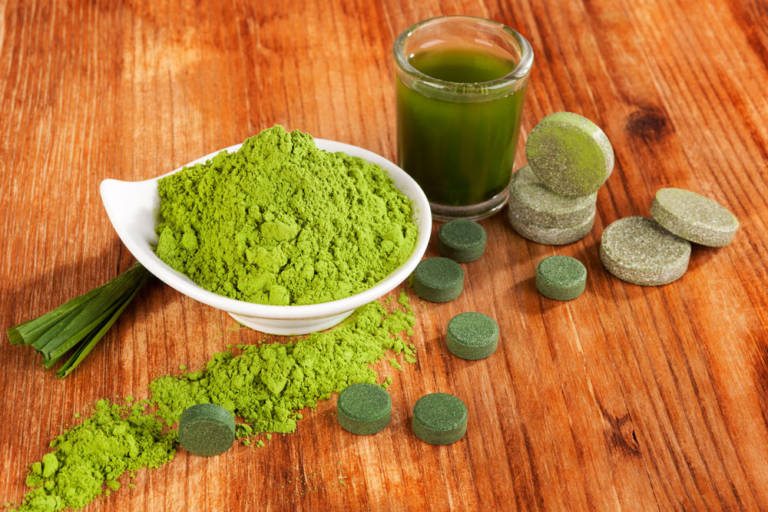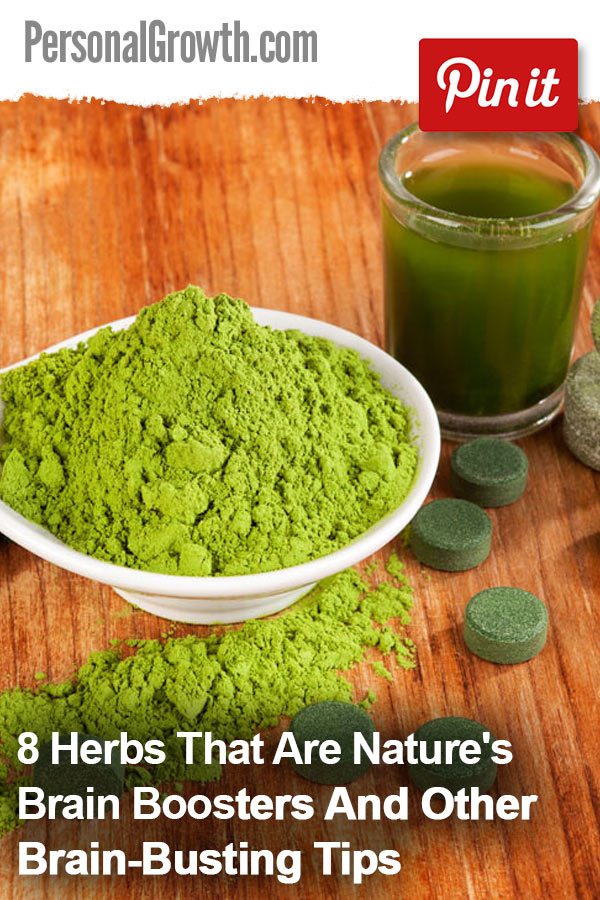

Your brain will generally grow some new connections between cells as long as your environment is stimulating or challenging. Basically, “Use it or lose it” applies to your brain power, too.
Neurotransmitters are the chemical messengers your brain uses to communicate, and transmission of the signals across your synapses is regulated by around 30 brain chemicals. The most well-known of these chemicals are serotonin, epinephrine and acetylcholine, which are all made from amino acids.
To do all this work, your brain relies on a consistent stream of oxygen, nutrients and blood sugar to make the energy that facilitates your learning, actions and thoughts.
For oxygen, get some more high chlorophyll foods into your diet. This group includes leafy greens such as beet greens, collards and kale, and “super” foods such as barley grass juice and wheat grass.
When you’re looking for some more mental clarity, aim for high-protein foods. Fish that is high in dimethylaminoethanol, also known as the “smart nutrient,” boosts your acetylcholine production and helps sharpen thinking. Other foods that are rich for your brain include those high in antioxidants, such as walnuts, cauliflower and blueberries. You can eat antioxidant-rich foods on their own or mix them into other dishes, such as salads.
The Herbs Have It
There are several herbs out there that may help boost your mental capacity. Gotu kola, for example, is used in India for brain-boosting purposes. This supplement is a combination of glutamine, pangamic acid, calcium and phosphorus, and it’s been used to treat dementia, fatigue and amnesia because of its revitalizing effect on nerves and brain cells.
Ginkgo biloba is popularly known for its ability to improve memory and has been used to treat memory loss, senility, and dementia and to promote stroke recovery. This cerebral tonic and antioxidant improves peripheral blood flow, which boosts your brain’s ability to use glucose and oxygen.
Ayurvedic medicine, one of the oldest holistic systems in the world, uses bacopa as kidney, nerve and brain tonic. This herb can enhance your neurotransmitter function, giving you a brainpower boost.
Rosemary is popular in cooking but was also used by ancient Greeks, who wore laurels of the herb when taking exams to improve their memories. Rosemary can stimulate your pineal gland and improve your energy levels. It contains more than 12 antioxidants and is a stimulant and tonic.
Licorice is more than just a sweet and energizing candy ingredient. This root product can stabilize your blood sugar levels and has been used to treat things, such as, stress and debility.
Oatstraw has rejuvenation properties and is known as a nerve and cerebral tonic, while schizandra berries are also a cerebral tonic than can boost your body’s ability to use oxygen.
Last but not least is Siberian ginseng, which nourishes your body’s adrenal and pituitary glands. According to the University of Maryland Medical Center, a Russian study showed that Siberian ginseng improved the memory of the participants who took it.
Before you take any herb, make sure you check the ingredients label and use a trusted source. These supplements are not regulated by the FDA, and some have additives or low quality and/or insufficient sources of the herb you’re looking for. Speak to your doctor if you have any health conditions or are taking medications, as herbal supplements can have side effects and impact some medicines.
If you’re not keen on herbs, there are aromas you can use to boost mental alertness, such as rosemary, peppermint, lime, lemon grass and lemon. Use the scents in a diffuser or inhaler, and use while studying and right before your test or performance for the maximum benefit.
Some Quick Tips
Try the following 30 techniques below to amp up your mental ability today!
• Take new routes to inspire some different thoughts.
• Don’t let yourself be stuck in a rut. Vacation in new places, and try new restaurants to sample the flavors of other cultures.
• Socialize with some intelligent people and have in-depth discussions.
• Always ask questions and get some answers, even if you have to find them yourself.
• Notice as many details as possible to sharpen all your senses.
• Be in the present and not absentminded.
• Learn wherever you can, in whatever way you can.
• Practice good posture so energy can better move in your nervous system.
• Exercise at least three times a week. Physical activity increases your body’s oxygen intake and helps speed up nerve impulses between your brain cells.
• Read things that are challenging.
• Try using your non-dominant hand daily to do simple tasks so you can stimulate different neural pathways.
• Yellow is considered to be a brain-stimulating color. Use yellow to highlight important parts when you read and in décor where your mental work is done.
• Take a closer look at nature.
• Write down all your details, from phone numbers to goals. Getting things out of your brain and down on paper helps free your mind for more creative things.
• Sit down in different spots to gain new perspectives when you’re taking a class.
• Note key words and phrases when you attend a lecture.
• Repeat things you want to remember aloud, and visualize those things being etched into your brain.
• Associate names you want to remember with a picture. Think of a Jane you just met morphing into a jaguar. When you are introduced to someone, remember to use their name.
• When you learn something important, imagine yourself registering this information and filing it mentally. Practice retrieving and putting back what you stored away.
• Think in a positive way. You will do better if you think, “I will pass this exam” instead of “I am definitely going to fail.”
• Try as hard as you can to avoid emotional stress.
• Avoid damaging substances, such as pollutants, cigarettes and alcohol, whenever you can.
• Try studying before bed, which may be more effective.
• Work in a team. Use the ideas and skills of your co-workers or friends in collaboration with your own.
• Shake negative thoughts with a little diversion. Take a walk, see a movie or call a friend.
• Creative people usually let their inner child out sometimes. Try a little play!
• Use visualization for some mental gymnastics.
• Play a mentally challenging game, such as chess or Scrabble.
• Practice some memory-improving exercises. With mnemonics, you make up information to help remember something. For the Great Lakes, for example, one common mnemonic is HOMES – Huron, Ontario, Michigan, Erie and Superior.
• Keep learning things of value for the rest of your life. With an open heart and mind, you’ll be more open to all the possibilities.
Whichever route you take to improve your brain function, remember that a more nimble mind will pay dividends when it comes to your success and your happiness. Start working on boosting your brain today for clearer thoughts and another advantage for your road to success and your path in life.

